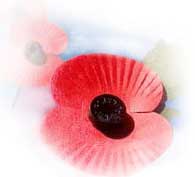
Craiglockhart War Hospital was opened in order to treat the huge increase in shell shocked officers after the Battle of the Somme. The hospital records show that 1801 officers were admitted to the hospital during its operation, although sixty five of these officers were German prisoners of war who had gunshot wounds, so 1736 patients were shell shocked officers. The number of admissions varied from 50 to 100 admissions per month, a reflection of the number of discharged soldiers. The average treatment period was two to four months and the discharged soldiers were discharged as medically unfit (DMU) or given Home Service (HS), which was usually a desk job, transferred to other hospitals or sent back to active service.
The records of the officers at Craiglockhart show a variety of diagnoses for their admissions. Some administrators seemed to be reluctant to provide a diagnosis of 'shell shock' or admit why the officers were there. Some of the diagnoses used were:
- 'hysterical' paralyses and functional disability (although lower ranked soldiers were simply diagnosed with 'hysteria')
- neurasthenia
- migraine
- glycosuria
- gas poisoning
- compound fracture of the toe
- haemorrhoids ('piles')